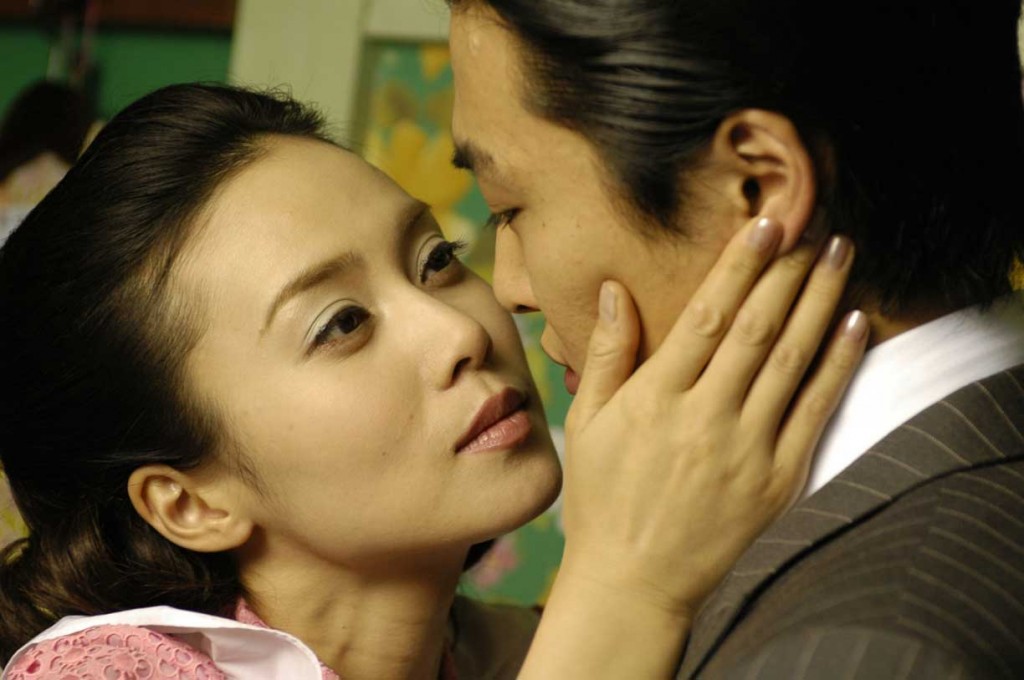Memories of Matsuko Review
 Eita plays a lazy student, Sho Kawajiri, who discovers that he has a recently deceased aunt named Matsuko (Miki Nakatani). Matsuko has been murdered and her body found near to her flat. Sho looks through the detritus left in her flat and gradually, through a series of flashbacks, her story and everything that has led to this point is revealed.
Eita plays a lazy student, Sho Kawajiri, who discovers that he has a recently deceased aunt named Matsuko (Miki Nakatani). Matsuko has been murdered and her body found near to her flat. Sho looks through the detritus left in her flat and gradually, through a series of flashbacks, her story and everything that has led to this point is revealed.
Matsuko struggles as a child with the feeling that her father cares more for her sick sister Kumi than he does for her and she therefore retreats inwards, relying heavily on trying to make him smile by pulling a silly face. She even gets to the point where she can’t stop pulling the face, putting her in tricky and tense situations.
Growing into a beautiful woman Matsuko becomes a teacher but after trying to protect a student she is fired and her world begins to collapse. The remainder of the film is in a way a spiralling descent littered with various hardships and woes but far from being a bleak and gruelling experience the film is filled with comic moments, musical numbers and visually stunning and pleasing imagery.
The effect of the often difficult scenes, including many of spousal abuse, sitting right next to 60s idyllic pop sequences – such as a song entitled ’Happy Wednesday’ – is not as tonally jarring as it probably should be and Nakashima does an incredible job of ensuring that the scenes that should be difficult to watch and emotionally draining remain so. This is also not in spite of the visual flourishes but actually because of them and the way in which he weaves the strands of tragedy and comedy is quite masterful.
The only issue with this melodramatic (meant entirely in the non-pejorative sense) plot is that it could perhaps be seen to be making light of a deeply troubling societal undercurrent of female subjugation. Matsuko at one point comments that “I don’t mind being hit. It’s better than being alone”. This is Matsuko’s belief in life and we see over and over again that she is desperate to be loved by a string of men who return her affections with violence. Whilst the film perhaps lionises Matsuko as the heroine of the piece, battling through life and everything that is thrown against her, it does not necessarily endorse her life choices at the same time and it is in this grey area that Nakashima treads the fine line and avoids any affirmation of despicable attitudes to women in society.
Memories of Matsuko is at times heart breaking and emotionally rewarding but it is also fun and filled with flamboyant visuals and music. It is difficult to think of many other films that have so beautifully applied such a diverse range of outrageous style choices to a plot and collection of characters that an audience can truly care about and be affected by. The first word one sees in Memories of Matsuko is the text on screen that reads simply, “Dream”. Although perhaps intended as a comment on the character of Matsuko’s default Modus operandi this also aptly sets up what to expect in this extravagant mix of tragedy, comedy, music and melodrama that director Tetsuya Nakashima serves up. Memories of Matsuko is a stunning and captivating film from a director with a bold and singular vision.
A slightly different version of this review was originally posted at HeyUGuys.